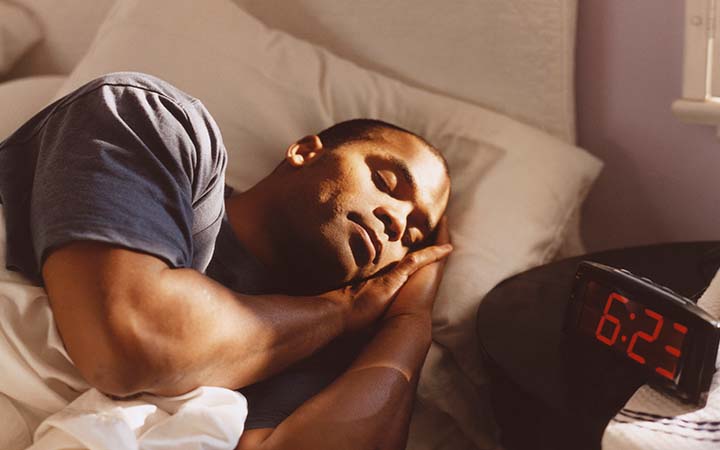How To Know If You're Getting a Good Night’s Sleep
August 30, 2021

Proper sleep is as important as nutrition and exercise. Yet we don’t often know how to size up our sleep health.
We know that chronic sleep loss and sleep disorders elevate risk of diabetes, heart disease, high blood pressure, obesity and depression. Sleep deprivation also impairs memory and thinking efficiency. An estimated 50 million to 70 million Americans do not plan on enough sleep.
In many cases, sleep loss can be fixed with lifestyle adjustments. But for the most part, the problem goes unrecognized.
Kingman Strohl, MD, program director of UH Sleep Medicine, says recognizing the importance of sleep health has come to a tipping point. Awareness of sleep disorders such as obstructive sleep apnea and our ability to define measures for sleep quality has increased to the point where individuals now have tools to take steps to improve their sleep.
“We always think about specific sleep disorders, but rarely define our sleep health,” Dr. Strohl says. “Having a sleep health metric, even if self-reported, would complement blood pressure and pulse as health metrics and lead to prevention efforts.”
Ask Yourself These Questions
Dr Strohl suggests tracking sleep habits, asking general questions to gauge sleep health:
- Are you going to bed and waking around the same times (within an hour) every day? A regular pattern is important.
- Are you satisfied with your sleep quality? Your perception is important and can lead to conversations with your healthcare provider if the quality is poor.
- Are you rested and alert during the day? Dozing during the day can reflect insufficient sleep.
- Are you asleep or trying to sleep between 2 and 4 a.m.? This is the mid-point of your sleep in the daily cycle of alertness.
- Do you have trouble falling asleep or staying asleep? The guideline is whether you spend more than 30 minutes awake in bed, including interruptions at night.
- Do you sleep between 7 hours and 9 hours every day? This amount of time is associated with better general health.
The greater number of problem areas, the greater risks for sleep-related health problems, Dr. Strohl says.
“These are questions people should be asking themselves,” he says. “It does not identify any specific sleep disorder. You might be able to identify something you can fix on your own, and also have a way of assessing your fix.”
Next Steps
There are any number of ways to improve sleep quality, such as exercise, losing weight, keeping regular sleep hours, reducing alcohol and caffeine consumption or even committing to sleeping 15 minutes to 30 minutes longer each night, Dr. Strohl says. By tracking your habits, along with the results of your sleep quality inventory, you may be able to detect lifestyle changes that make a difference.
While busy lives and stress often get in the way of a good night’s sleep, we are empowered to figure out the best personal sleep habits for better health.
“The answer has too often been a pill, when in fact healthy sleep is a multifaceted skill, achieved by a pattern of habits,” Dr. Strohl says. “Yet changing sleep habits is hard, just like changing dietary or exercise habits. But it is another path to assess and improve quality of life.”
Related Links
Sleep disorder doctors at University Hospitals work hand-in-hand with our pulmonary specialists, heart doctors, ENTs, neurologists and psychologists to evaluate patients’ sleep struggles and restore them to good, solid rest. Learn more about sleep medicine at University Hospitals.


